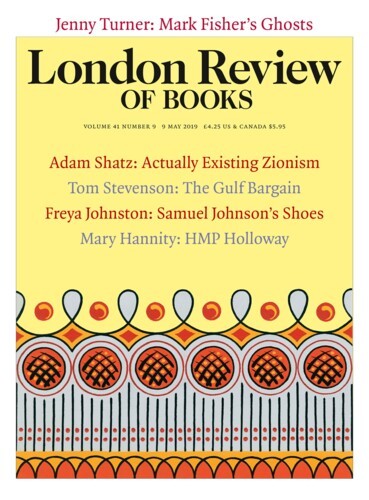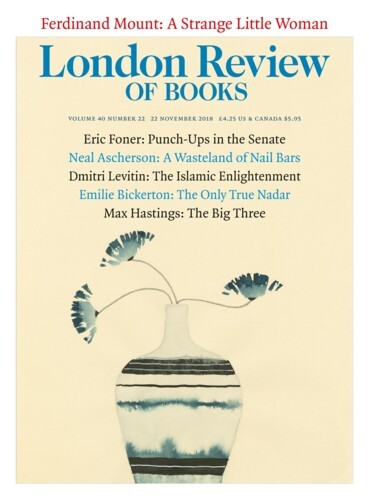Trump’s America, Netanyahu’s Israel: Actually Existing Zionism
Adam Shatz, 9 May 2019
Israel’s legislative elections on 9 April were a tribute to Binyamin Netanyahu’s transformation of the political landscape. At no point were they discussed in terms of which candidates might be persuaded by (non-existent) American pressure, or the ‘international community’, to end the occupation. This time the question was which party leader could be trusted by...



